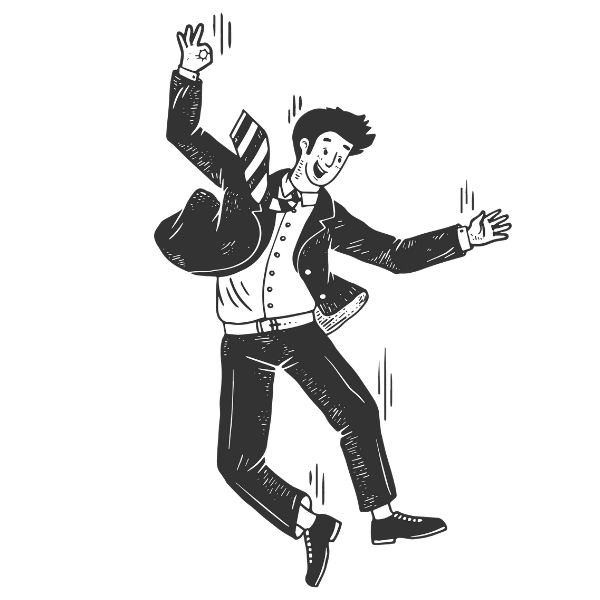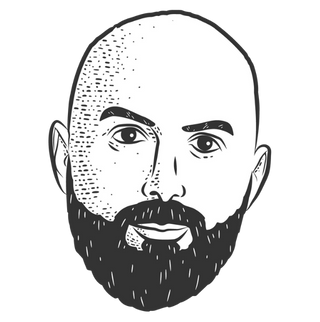
When you’re ready to start building a team, it’s like getting ready to jump out of a plane – overwhelmingly exciting and terrifying at the same time. You’re about to embark on one of the most important steps in your business’s journey. Scared yet? Don’t be, we’re here to help.
Although it might sound daunting, you’ve got this. At the end of the day, if you’re confident and passionate about your business that’s half (if not two thirds) of the battle. Now it’s just a question of finding other people who will share that drive and enthusiasm and help you achieve even more.
Building trust and confidence with your team begins from the first time you meet them
In this article we’ll give you some tips on ways you can interview candidates to find the best match(es) for the team you want to build and the culture you want to create.
Sign up for full access
Navigating your way through what to do can be confusing – that’s why we’re building something pretty special to make your journey that bit easier. Sign up now and receive regular updates… as well as early access when we launch!
Tops tip for successful interviewing
As the interviewer you have the power to control how successful interviews are. Here are some of the ways we believe you can be a legendary interviewer and recruit a team of superstars.
Be human. This is our number one tip for interviewing, and for life in general. Don’t expect perfection and let candidates know that it’s OK for them to make mistakes, admit them and learn from them. Building trust and confidence with your team begins from the first time you meet them, don’t wait until hiring them to get started.
Keep it informal. Remember it’s a two-way chat. You might have some questions to get through but try as hard as you can to make it feel natural. Don’t glue yourself to a script. Let the conversation flow and let tangents happen – they can lead to some of the most interesting interviews you’ll have.
You want to get to know the candidate as a person, not just a skill set
Smile. This might sound obvious, but a smile goes a long way. It relaxes you and will help relax the candidate. And if you’re both relaxed then you’ll get the most out of the interview and get to experience the candidate’s real nature.
Go off piste. Personally we don’t love lists of structured questions for interviewing. If you ask about their greatest strengths and weaknesses you’re going to get naff, uninspiring answers. Instead ask random questions that probe. What has most shocked them on the news lately? Or when’s the last time they belly laughed? Those types of questions will often spark really interesting conversations to give you an insight into the candidate as a person.
Keep tech speak in its place. If the role is technical you might want a section of the interview(s) to be specifically about the tech elements. Or even include a practical element. Just keep it focused and as only part of the interview. Even if they’ll be coding all day long if they join the business, you still want to get to know them as a person, not just a skill set.
Give yourself 10 minutes at the end of every interview to write up your notes and thoughts
Consider paid trials. Some people can ace an interview but turn out to be nightmare employees. Equally some superstars take a little warming up and may not shine in an interview setting. Offering a paid trial, whether it’s a day or a week, gives you a chance to work together before committing to a hire – and it gives the candidate a proper taste of your business.
Take notes. Even if you think you have an amazing memory, after a few interviews back to back you tend to forget who’s who or who said what. Give yourself 10 minutes at the end of every interview to write up your notes and thoughts. They come in incredibly useful for reminding you of each candidate.
Always follow up. Whether you loved them or not, always make sure you send a personal follow up to all interviews with some useful feedback. Candidates have taken time to prepare and attend an interview, the least you can do is give them a little heads up on how they did and when/if you’ll be in touch again.
Founder story
“I’ve been lucky enough to have had some great people join my team when I was building my start-up (and also made a few mistakes). I think the most interesting part of the great hires I’ve made and also where I have made mistakes is, they’re ones I probably should have picked up on during the interview process.
For example, one fantastic employee was actually really quiet during the interview – had I have let that sway me, I’d have missed out on a top employee! Equally, where I made a mistake for another hire, had I had a less relaxed approach to interviewing, perhaps I’d have gleaned more information that perhaps they weren’t the right fit for the business after all.
Be thorough with your process and make sure you’re picking out the necessary elements of your business, e.g. the ability to work autonomously, are the a good fit with the culture, is there a passion – whatever is essential to your business and their role being a success for both parties.”
– Eddie Whittingham, Founder
Read more
Common types of questioning
If you’re looking for some theory about interview questioning styles, here are four common approaches to consider.
One to one interviews
You’ll no doubt have experienced the joys of a one-to-one interview as either a candidate or interviewer, as it tops the ranks of interview styles these days. You’ll have either been in a structured one-to-one interview with a set of specific questions for the candidate to answer – usually designed to evaluate their skill set.
Or perhaps you’ve encountered or conducted an unstructured one-to-one interview, where it feels more like a general chit chat with a range of different questions mixed in. This style is great for getting a feel of the candidate’s personality but can often lack direction for figuring out their technical ability.
Behavioural questions
These are the typical “tell us how you dealt with X in the past” or “give an example of when you had to Y” questions. They come in handy when looking at how a candidate behaves in various situations, what they learned and how they apply it in the future.
Situational questions
These are a little like role play questions. You describe a challenging situation to the candidate and ask them how they’d deal with it or react. Similar to the behavioural questions, you get an insight into how the candidate would react and cope with these scenarios.
Case study questions
A case question goes one step further than a situational question by focusing on a specific business problem you’re facing. These types of questions can involve a presentation element for the candidate to prepare ahead of the interview. It might sound like a pain but it can be great fodder for the interview itself and potentially give you great ideas for solutions to a real life problem you’re dealing with.
Keep learning...
Check out our other articles for more tips, tricks and advice to help your startup succeed.

 © 2026 GoFounder Ltd. All rights reserved.
© 2026 GoFounder Ltd. All rights reserved.